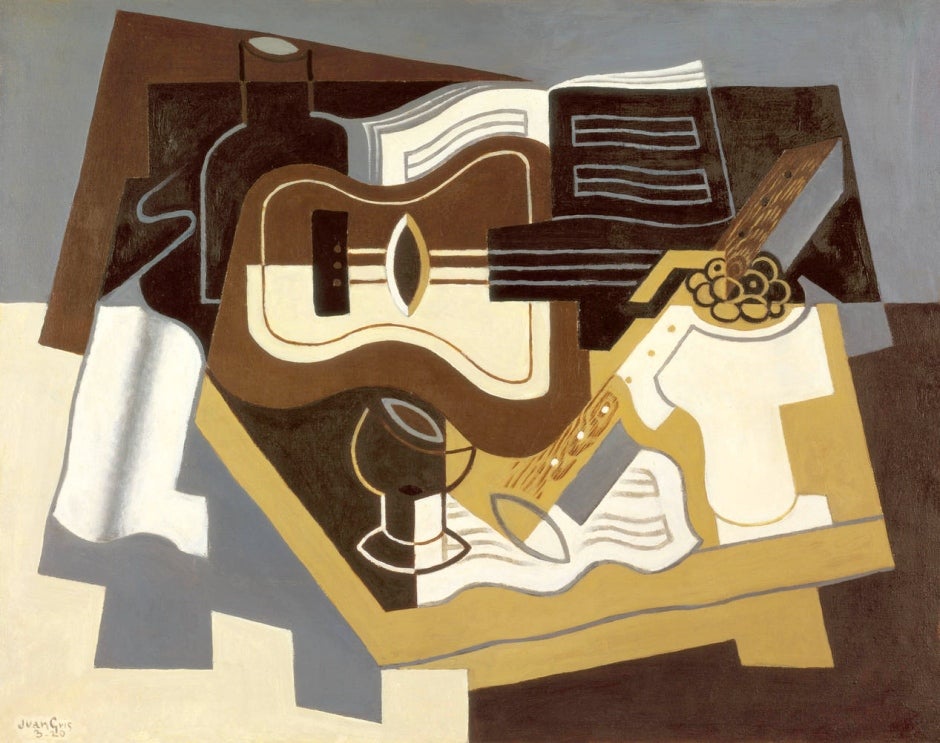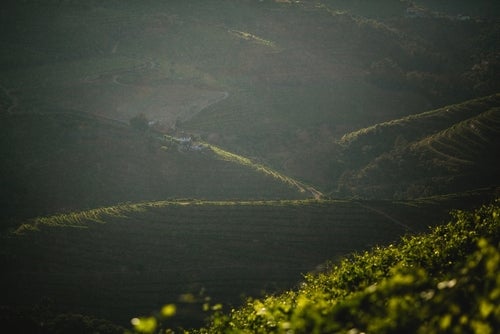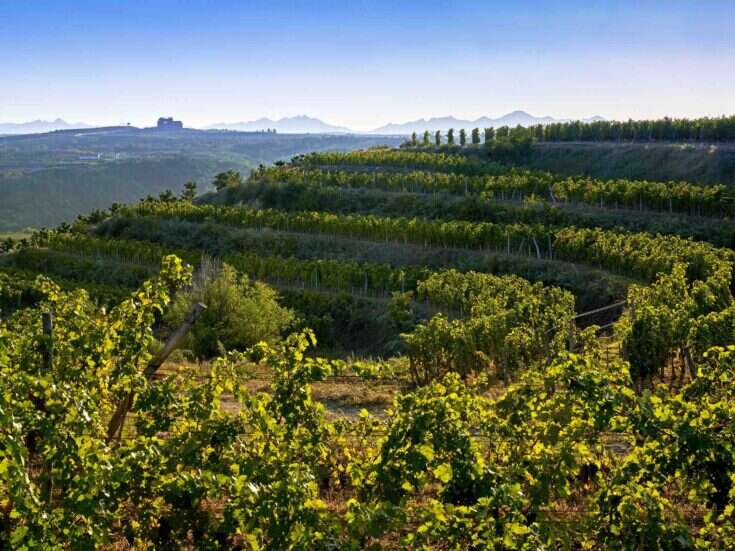
Harry Eyres explores the many connections and affinities between wine and music.
Music is the world as we would like it to be—a world without borders, free of prejudice and discrimination, a world governed by love and harmony, not hatred and division. Even in the worst of times, music has been able to soar free. The Leningrad premiere of Shostakovich’s 7th Symphony, given during the siege of the city by the surviving members of the Leningrad Radio Symphony, many almost too weak to play (three died during rehearsals), was broadcast to the besieging German forces.
I was thinking about this over the course of London’s great summer classical music festival, the BBC Proms. Highlights included a performance of Beethoven’s Emperor piano concerto by the young South Korean pianist Yunchan Lim, and cellist Laura van der Heijden’s rendition of the Catalan folksong “The Song of the Birds.” Lim’s delicacy of touch made Beethoven sound almost like Chopin, and van de Heijden held the huge hall spellbound, a young British woman (her father is Dutch and her mother Swiss) channeling the spirit of the venerable Pau Casals, who made the arrangement and played the piece at all his concerts during his long exile from Spain. The distinctiveness of their playing had nothing to do with nationality or gender.
Music is quite often invoked in the context of wine. Krug, for example, curates “music pairings” to allow “music and Champagne to resonate in harmony and awaken the senses.” Unfortunately, when I attended one, this was not my experience. The combination resulted in a feeling more like indigestion. In fact, the two art forms seem to me quite far apart. On the other hand, the commonwealths or ideal worlds of music and wine have much in common. The poem that gives this column its title, after all, is a song sung by the soul of wine to the drinker, a song “full of light and brotherly love.” Here music and wine are fused.
One world of wine and music
The commonwealths of wine and music are, I’d say, growing ever more alike. National borders and distinctions, for example, as I have discussed here before, are becoming increasingly irrelevant. I remember interviewing the young Etienne Grivot in the late 1980s and being quite surprised to hear that he had worked in California before joining the family domaine in Vosne-Romanée. This would never have happened in his father’s generation. Now it is commonplace, with the result that those stale terms “Old World” and “New World” no longer have much meaning.
South Africa is currently the most interesting test case. The wine writer Christian Eedes says that “without four to five international harvests on their CVs, young winemakers in South Africa don’t feel like they’ve met a professional threshold.” In many instances, the interconnections go much deeper. Revered winemaker Eben Sadie spent several years working on a project in Priorat while simultaneously exploring and developing exceptional plots of old vines in Swartland.
Having worked for Louise Hofmeyer’s Welgemeend estate in Paarl, Tom Lubbe—one of the most thoughtful winemakers of his generation—went to Roussillon and established his Matassa project, working organically with very old vines. The Krajewskis make wine in both Bordeaux (St-Emilion and Pomerol) and South Africa. The most exciting South African wines—such as Porseleinberg’s Syrahs and Chris and Andrea Mullineux’s Granite, Iron, and Schist Chenins—have almost no connection with clichéd ideas of what a New World wine might taste like. The Porseleinberg Syrahs take the line of travel of certain Côte-Rôties, toward florality and finesse, possibly even further than anyone has managed on the roasted slope. The earth or the terroir, of which their wines are inspired expressions, after all, is not necessarily older or younger in Swartland than it is above Ampuis.
The ecstatic communion of wine and music
Beyond the internationalism of winemakers is the international destiny of wine itself. Here, once again, the connection with music is strong. Music may have national or cultural roots—Janáček’s music, for example, speaks in an unmistakably Czech accent, in the same way that Vaughan Williams’s music is profoundly English—but the destiny of all great music is to transcend national boundaries. One of Janáček’s most insightful interpreters was the Australian Charles Mackerras. Attending a performance of The Cunning Little Vixen at English National Opera a few years ago, I did not sense the London audience was any less able to appreciate this earthy, tragicomic masterwork than a Prague one would have been. The same surely also goes for wines, which, even more viscerally than symphonies or operas, are rooted in place but seek appreciators and lovers all over the globe.
Returning to Baudelaire’s poem, one may find even deeper connections between wine and music. Both involve some kind of sacrifice, if it’s possible to free that word from some of its negative or sanguinary connotations and go back to the root meaning of “making sacred” through a transcending of the ego. More pragmatically, both wine and music require hard toil—the thousands of hours of practice that enable Lim and van der Heijden to play with such freedom, confidence, and expressivity, and the backbreaking work in the hot, steep vineyards that Baudelaire’s soul of wine acknowledges. But winemaking and music-making (at the highest level) both aim for a kind of ecstatic communion, a shared experience that brings people closer to themselves and others.







